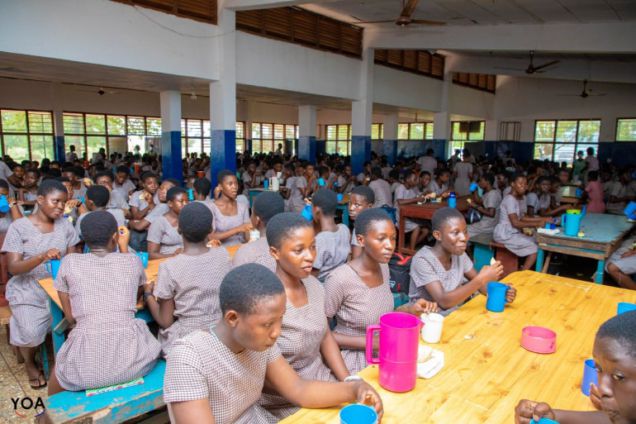The Conference of Heads of Assisted Secondary Schools (CHASS) has voiced serious concerns regarding the adequacy of the current funding allocated for student meals under Ghana’s Free Senior High School (SHS) policy. The government’s provision of GH₵7.50 per student per day has been deemed insufficient to meet the nutritional needs of students and to effectively manage school feeding programs. CHASS National Secretary, Primus Baro, explicitly stated that the allocated amount is “not enough,” underscoring the financial strain placed on schools struggling to provide balanced and nutritious meals. This inadequacy is further exacerbated by ongoing food shortages, compelling schools to grapple with menu limitations and potential disruptions to regular meal services. CHASS anticipates further discussions and a comprehensive review of the current funding structure to arrive at a more realistic and sustainable allocation that adequately addresses the nutritional needs of SHS students.
The current breakdown of the GH₵7.50 allocation reveals further layers of complexity in managing school feeding programs. Of this amount, GH₵2.50 is earmarked for perishable goods, including fresh produce, meat, and dairy products. The remaining GH₵5.00 is utilized by the government for the procurement of non-perishable food items, which are then distributed to schools. This bifurcated approach presents challenges in ensuring a consistent supply of both fresh and staple food items. The limited funding for perishables restricts schools’ ability to provide a diverse and nutritious diet, potentially impacting the overall health and well-being of students. Furthermore, the centralized procurement and distribution of non-perishable items can lead to logistical bottlenecks and delays, further compounding the challenges faced by school administrators in ensuring consistent meal provision.
The ongoing food shortages within the SHS system have prompted a direct intervention from President John Mahama. Acknowledging the urgency of the situation, the President has authorized the release of food supplies from strategic reserves initially designated for drought relief efforts. This redirection of resources underscores the severity of the food crisis impacting schools and the government’s commitment to addressing the immediate nutritional needs of SHS students. While this measure offers a temporary reprieve, it highlights the systemic challenges within the food supply chain and the need for long-term solutions to ensure consistent and adequate food provision for the SHS program.
The financial constraints faced by schools under the current funding allocation necessitate difficult choices and compromises. School administrators are forced to make tough decisions regarding menu planning, often having to prioritize staple foods over more nutritious, perishable items. This can lead to a monotonous and potentially less nutritious diet for students, impacting their overall health and academic performance. Furthermore, the limited budget restricts schools’ ability to cater to dietary restrictions or allergies, potentially excluding certain students from accessing adequate meals. The financial pressures also limit the schools’ ability to invest in essential kitchen equipment and infrastructure, further hindering their capacity to provide quality meal services.
The CHASS call for a review of the feeding fees reflects a broader concern about the long-term sustainability of the Free SHS program under the current funding model. The GH₵7.50 allocation, deemed insufficient by school administrators, raises questions about the government’s capacity to maintain the program’s quality and reach without adequate financial investment. The reliance on emergency food reserves underscores the fragility of the current system and the need for a more robust and sustainable approach to food procurement and distribution. A comprehensive review of the funding structure is crucial to ensure the program’s long-term viability and its ability to deliver on its promise of providing quality education and nutrition to all Ghanaian students.
The challenges faced by the Free SHS program in Ghana highlight the complex interplay between policy implementation, resource allocation, and the realities on the ground. While the program’s aims are laudable, its success hinges on adequate funding and efficient resource management. The current predicament underscores the need for continuous monitoring, evaluation, and adaptation of policies to ensure they effectively address the needs of the intended beneficiaries. Open dialogue between stakeholders, including CHASS, the government, and other relevant actors, is essential to identify sustainable solutions and ensure the long-term success of the Free SHS program in providing quality education and nutrition for all Ghanaian students.














